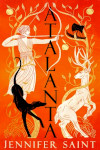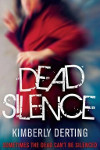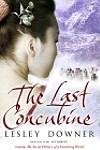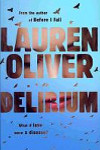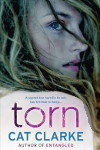Curtis Sittenfeld – Prep
Posted 13th July 2010
Category: Reviews Genres: 2000s, Angst, Romance, Social
3 Comments

A dedicated coming-of-age story more detailed than most and set against the backdrop of a boarding school.
Publisher: Black Swan (Random House)
Pages: 478
Type: Fiction
Age: YA
ISBN: 978-0-552-77684-4
First Published: 2005
Date Reviewed: 12th July 2010
Rating: 4.5/5
Prep is being been re-published by Transworld on 22nd July 2010 and features a stunning cover that conveys the atmosphere of the story well.
Lee went to boarding school at fourteen after doing all the research into schools herself and being drawn in by dreamy-looking prospectuses. But on formally joining the school she realises that all those images of happy-looking students aren’t quite true to life, at least not in the way she expected them to be. Perhaps being a scholarship student makes it difficult when everyone around you seems to have a money tree in their room, but as Lee comes to understand herself better she finds that most of her issues are solely to do with herself. Prep is set some time in the late 1980s or early 1990’s – around the time mobile phones first came into use, when cassette tapes outdid compact discs, and young people listened mostly to their parent’s music collection.
I came to choose Prep as my first Transworld challenge read due a similarity in situation between Lee and myself, and to my pleasant surprise I found that not only could I relate to Lee in that afore-mentioned way but in many others; a great deal of what she experiences are things that young people face as a whole so I will discuss these in detail.
Firstly however, I’m going to talk about the setting. Sittenfeld presents us with Ault boarding school and it’s as picture perfect as Lee’s preconceptions suggested. Reviewers have likened the book to Sweet Valley High and Sittenfeld’s writing to Salinger and Plath – I myself think of Mallory Towers, The Templeton Twins, and St. Trinians, the books I knew of as a child thanks to the older generation, which I enjoyed myself. Although there is a lot of time given to Lee’s personality there is enough here to enjoy the book for the school’s sake, in other words if you’re wanting to read something akin to any of the books I’ve just mentioned you won’t be disappointed. A great deal of the first third or so of Prep is dedicated to student life as Lee settles herself in the secluded world she’s entered.
“What am I writing?”
All of us fell silent, a loaded, electric silence. “I know where you live,” Alexis suggested.
“I see you when you’re sleeping,” Heidi said.
“I smell your blood,” Amy said. “And it smells” – she glanced at Madame – “tres delicieus.”
“We will not bring the French into this,” Madame said.
The catalyst for everything Lee experiences is her nervousness, her inability to accept the fact that she is as good as everyone else and that really no one’s out to get her, she’s just overly paranoid. It’s said that if you want something bad enough you’ll get it and that applies to negative things too – Lee is a normal person but her personal worries and issues sometimes lead her to open up cans of worms that hadn’t previously existed. Of course as soon as this happens she revels in her false belief that she was right all along, which is sad. You feel you want to root for Lee, especially when she finally gets a boyfriend, but you can’t help feeling frustrated at the way she handles things.
Nevertheless this frustration is good – because it’s the frustration that our parents quite likely felt for us, so now of course we, as readers, through Lee, can pick up on times when we chose the wrong path in our own childhood – and it’s also good for readers around Lee’s age (while she is at Ault – the story is told as a first-person recollection years later) because they might be able to pin-point where their own lives are the same at this present moment and do something about it before they have time to look back with regret.
Sittenfeld deals with loneliness in a way that is subtle but completely effective. Clearly she remembers her own school life well and has applied plenty of her own knowledge in order for her readers to relate to this fictional character seamlessly. Lee thinks she’s lonely and that she has no friends but in fact there are many people she meets and gets to interact with, including one of her class’s most-sought-after boys. Most people feel alone at some point but what Sittenfeld has done is to hint that all that loneliness put together, as in everyone’s loneliness, makes for a happy and full life. You have to be willing to accept invitations when you get them rather than be put off by the person’s own loneliness. We all get lonely but somehow we’ve developed this mindset that if a social activity is proposed to us by another person, and that person is themselves lonely, then our taking up of their offer is shameful and embarrassing. In these moments of possibility, of not being alone, we are unwittingly scared by something that has already consumed us – we are, in effect, scared upon seeing a reflection of ourselves in another. But it always looks worse when you see it in someone else.
A lot of the lesser-acknowledged issues observed in the book are conquered via short dialogues and quotations. Consider the following:
Little’s blackness made her exist outside of Ault’s social strata. Not automatically, though, not in a negative way. More like, it gave her the choice of opting out without seeming like a loser.
This is true for many different social groups, but it hasn’t been fully realised yet. When you’re on the outside looking in, and even sometimes when you’re on the inside, you don’t always see the advantages to being uncool when it’s related to something that’s difficult, nay impossible, to change.
In such proximity to Cross, I stared at the floor, feeling clammy and unattractive from having been outside with Conchita.
This quotation backs up the idea of us being lonely and put off by other’s loneliness as well as explaining where exactly Lee’s place is at Ault. Lee actually straddles both “cool” and “weird” social groups but she doesn’t understand that. As in Little’s case, Lee is in a position of advantage but her mentality towards being seen as uncool means that this isn’t realised. The quotation also explains that as soon as people make it higher in society (Lee was talking to a popular student) they like to pretend that their less high acquaintances (usually the ones who got them there in the first place) don’t exist to them.
This leads into:
There are people we treat wrong, and later, we’re prepared to treat other people right.
We hurt people, dump our friends, but these relationships give us practise for next time – and we’re probably practise for other people ourselves anyway.
And lastly, in relation to the wider-world:
“Why do you think so few students receive financial aid?”
“We don’t add diversity to the school”
Be sure that race is another issue featured heavy in Prep and that again, Sittenfeld knows how to tackle it efficiently.
Something negative I would like to point out, in relation to Sittenfeld’s writing, is her reference to “spazzing out”. It’s the kind of thing many authors say but in Prep it is particularly bad because not only is Sittenfeld using the term but she’s saying that if you spaz out you can’t have boyfriends. Considering all her other political commentary, this is very poor.
Aside from the disability awareness issue however there is little else to find fault in. Sittenfeld’s writing style is on the whole beautiful and the words slide across the page effortlessly, though she should have considered more her word order at times. I’m not sure if it’s a new American convention but sometimes her sentences are clunky and read like gravelled driveways rather than smooth ones. Lastly, many of the names she uses are… not names. Horton is a surname, not a first name; Gates is the term for the doors that separate a person’s home from the road, and Cross is the mood you’re in when your sister yanks your hair out.
Speaking of Cross and who he is to Lee, I should talk about the romance in the book. There’s not much of it, but it’s in keeping with the rest of the story and with Lee’s personality. The finer points are explored in keeping with Lee, so that although the period of intense focus on it is specific to a situation others may not have experienced, it suits the book well.
It often seemed to me that boys preferred to be by themselves, talking about girls in the hungry way that, I suspected, they found more gratifying than the presence of an actual girl.
In addition to Lee’s crush, sexuality as a whole is explored, the damning consequences of taboo lifestyles and stress brought out into the open. While they may be less of a taboo today and widely accepted an explanation is apt and warranted here and it reminds you how different we are as a society now.
Something that isn’t nice about Lee is when she feels unable to be there for her friend who’s just been elected prefect. Lee doesn’t want to be there for her because she’s worried about having to reassure her. Her jealousy at finding out that her friend is popular and the fact that she (the friend) has been given something that would’ve changed Lee’s own life makes her unable to be happy for her. This is the extreme result of Lee’s nervousness and it puts everything else into perspective. In truth Martha is the same as Lee herself and in having her present Sittenfeld shows us the other side of the equation, what you can do if you’re aloof from others to gain respect, what Lee could have done. Martha is Lee’s opposite in the ways that it matters to this story.
In essence, Lee is a regular teenager who doesn’t take opportunities and then wallows in her self-pity. In essence she’s not simply a misunderstood character at all, but what she is is a reflection of real life for many people and an illustration in how we should conduct ourselves. She is a good main character because we can relate to her either all the way through the book (and see her flaws) or some way through and then react with distaste to how she handles situations and be able to use this distaste to set ourselves on the right path.
Prep is a fantastic look into life as a teenager, focusing in depth on issues that many other books cover only as a subplot or general part of a character. In writing it Sittenfeld has provided the reader with something not unlike a manual on how to get yourself out of unwanted situations and how to deal with social interactions when you’re just finding your feet amongst your peers. It doesn’t really matter how old you are, there’s something here for everyone and everyone could benefit from reading it whether they actively apply it’s “teachings” to their life or not.
I received this book for review from Transworld Publishing, Random House.
Related Books
None yet
Philip Pullman – The Tiger In The Well
Posted 8th July 2010
Category: Reviews Genres: 1990s, Historical, Political, Thriller
Comments Off on Philip Pullman – The Tiger In The Well

Twelve years ago a young girl called Charlie bought a book, captivated by the beautiful cover of a gun on a green background and a woman’s silhouette drifting away into the green night. She thought it would make a good candidate for her first “grown-up” book – but then she found out that this was the third in a series so she bought the first two (The Ruby In The Smoke and The Shadow In The North), loving the first but finding the second boring. She never finished the second and so the awesome green book with the gun on it was never read.
Publisher: Point (Scholastic)
Pages: 390
Type: Fiction
Age: YA/Adult
ISBN: 978-1407-11171-1 (a newer version than the one shown)
First Published: 1991
Date Reviewed: 30th June 2010
Rating: 4.5/5
Throughout my older years The Tiger In The Well continued to beckon me from a dusty old shelf and, finally, last year, I decided the time was right – I must re-read the first and finish the second and then read this third book. I liked the first but it wasn’t as compelling as I remembered, however the second was dull, so dull, and I could see why I’d given up on it. And now I’ve read the third and it seems my young intuition was correct – this time Pullman has presented a cracker of a story.
Someone’s after Sally’s money and the daughter fathered by her dead lover, Frederick Garland, claiming that she was married to him (the man after her money) and saying he’d like a divorce due to her scandalous behaviour. Everything seems legit, and it’s starting to eat away at Sally so much that she’s beginning to believe it. At the same time hundreds of Jewish immigrants are being persecuted, and it’s the same faction that are pursuing in both incidences. Sally’s friends Jim and Webster are out of the country but fortunately, due to the plight of the Jews, there are plenty of people who want the faction brought down and unlike her poor excuse for a solicitor these people won’t let them get away with it.
The Tiger In The Well brings the Sally Lockhart Quartet into a new light. Sally is in her mid twenties now and because of this Pullman is able to take the storytelling up a notch, assuming the readers will have grown up too and therefore are old enough to digest the issues he presents without worry. There’s a mass of subplots and extra details in the book, making it a speedy read – there are situations where characters split up and so the narrative has to dart back and forth continuously, but Pullman goes into enough detail before this happens so that you want to hear about each group equally as much and forgetting is impossible. With never a dull moment whatsoever, the long book takes you through chases, hiding places, work in the slums, the high society, the gangs, the big homes, the shabby shelters, the battles, the peace, the sadness, the happiness – it’s all here.
The Victorian setting was good in the last books but Pullman never made the most of it; that’s been rectified here, he describes locations beautifully and makes the past come alive, one can envelope themselves in the plot and although it’s a story centred around hate it’s hard not to wish you were there when Queen Victoria reigned. Orchard House brings pastel greens and white to mind, the streets grey and brown, and the mansion red and gold. Victorian England was a mutely-toned place, but Pullman has pulled out its treasures and put them on display.
Pullman is at his best when writing about women, and he’s on top form here. He likes his women to have guts and be strong of mind but doesn’t load them with the stereotypical sex image you would usually expect. Sally Lockhart is only ever burdened as a woman by the sexist views of her society, away from that she is as good as any man and only ever behaves as men would expect her to when completely overpowered.
Unfortunately the climax is a let-down. After all the preparation Sally has done, when she finally gets to the deepest darkest part, the nucleus of all her problems, the plot is resolved by something outside of anyone’s control. You’re on course, reading swiftly, and then this “thing” happens and suddenly there’s no reason to continue because it’s over and you know you’re never going to get to read about what Pullman had primed you for. The particular setting of this part, a fantastically described house which you can let your imagination go riot on, is magnificent and set the stage perfectly, so why Pullman went for an easy and boring cliché is incomprehensible.
Luckily there is a bit more action to be had after this episode and it’s very funny, so although it doesn’t quite match up it’s worth carrying on. Harriet, Sally’s daughter, goes from posh rich girl to happy average child and the dialogue Pullman gives her is hilarious. Throughout the book Pullman makes a point of giving Harriet a good amount of time and tells us what she’s thinking. And when Sally tells her to be brave, the little two year old remembers it and comes into her own. A toddler being a compelling character all by herself – that’s something you don’t come across every day.
If you are upset by the fact that Jim and Webster are in South America while this is going on never fear. Pullman will more than make up for it by the time you’ve reached the end.
I believe that with a quick bit of research you could read this book without having read the others first, and personally that’s what I would recommend doing. The Tiger In The Well rips it’s claws through the previous books and roars it’s way through from start to finish. It is an excellent book, possibly even surpassing Pullman’s His Dark Materials trilogy.
Related Books
Julith Jedamus – The Book Of Loss
Posted 18th June 2010
Category: Reviews Genres: 2000s, Historical, Romance
Comments Off on Julith Jedamus – The Book Of Loss
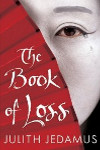
Do to others what you would have done to yourself – or you may find yourself in a terrible predicament.
Publisher: Phoenix (Orion Books)
Pages: 259
Type: Fiction
Age: Adult
ISBN: 978-0-753-820483
First Published: 2005
Date Reviewed: 11th June 2010
Rating: 2.5/5
If you wish to read this book you may have to search for it, for it appears to be out of print. Articles on Julith Jedamus are nowhere to be found.
A fallen princess comes into possession of the diary of the woman who slandered her name. She presents this diary, unedited, to the reader, whom she hopes will understand how awful this woman was. In 10th Century Japan two women sought to gain the heart of one man. The writer of the diary, our narrator and the one pushed aside, tells of her plight to get him back after he was sent into exile for damaging the emperor’s reputation and the virtue of the high princess. She spreads rumours to hurt her rival but comes to fall in love with another; however those old rumours are not easily shifted in a world where thousands can hear them.
It took this reviewer ages to get into the book. Up until half-way through it’s easy to get distracted from it, even if you’ve nothing to be distracted by because essentially you’re thrown into the middle-end of a story. It bypasses the tale of how things were, going straight into the time after the main event – the triangle between the man and the two women – has happened rather than telling you about it as it happened. All there is to read about, therefore, is the aftermath. How is one supposed to feel for a character they haven’t spent time with? An important factor in a book is being able to relate to the characters in some way, whether that’s with fondness, an understanding, or dislike. This fundamental concept has been left out by Jedamus to dire effect. We have a situation where the title of the book is perfect for it’s contents, but for all the wrong reasons.
The distance between reader and character is a pity because the writing errs on the side of beauty – with nothing to keep your interest you’re not going to recognize the poetry as many times as you should. However, this said, Jedamus has made too much of her favour towards metaphors anyway. I can’t be the only one coming up with images of a writer sat in silence, unmoving at her desk, desperately searching her mind for anything, anything, that she can turn into a metaphor. I put to you two quotations, the first an example of goodness, the second perhaps the biggest clanger of all:
My needle flashed back and forth through the blue silk, like a wasp darting amongst a bed of delphiniums.
His limbs as pale as peeled willow.
Where did Jedamus find the idea for the second one? She has written a sentence that will boggle most of her readers because let’s face it, how many people will have seen peeled willow? It’s a good metaphor for the time period perhaps but it’s too specific, niche, for us today.
Going back to the plot of the story and the content that should not have been missed, the reader is thrown straight into the “action” without sufficient background knowledge. “Action” is put in quotations because in actual fact there is no action, not of the generally presumed kind (although if by “action” you read “sex”, well yes there is a bit of that). Most of the story is taken up by the spreading of rumours, rumours that you couldn’t care less about because, as said, there’s no reason to feel anything for the characters. You may feel a little dislike for the narrator but while that may have been the aim of the fallen princess who presented the work, it doesn’t seem to be Jedamus’s aim. Certainly she wants us to look at both sides and see the cruelty produced by these sides, but she seems to want us to be forgiving too.
The plot eases up where there is dialogue as it gives you something current to focus on. The scenes between the narrator and her new lover are especially easy to read simply because this man is a new acquaintance of hers and thus their story is brand new, the one thing the reader is given that started in the book itself. Finally, as the lover gains overall importance and the narrator begins to forget her malicious ways the plot turns into something you look forward to reading. The narrator seeks redemption, and even if it’s too late there are from then on reasons to become emotionally involved.
The romantic scenes are in the main short and passionate, without being graphic. Sex is mostly simply alluded to (though there are a few descriptions) and more emphasis is placed on feelings and emotions.
The ending is interesting: the princess, in a postscript that suggests what happened afterwards, concludes it, but not fully – there is room for your own conclusion. Whether the end is satisfactory you’ll also have to decide for yourself.
Quite honestly it’s not difficult to see why this book is out of print. There is not enough explanation of culture and too many heavy references. Jedamus would make a stunning poet, non-fiction author, and even commentator, but as a novelist her future is unlikely to get any better. This is the story of a woman cast into hell by a man who soiled the reputation of many women; a woman so hurt she saw it necessary to drag others along with her. It has a good message but takes far too long to find it.
Related Books
Stephenie Meyer – The Short Second Life Of Bree Tanner
Posted 12th June 2010
Category: Reviews Genres: 2010s, Fantasy
1 Comment

Just when you thought the series couldn’t be commercialised any further…
Publisher: Atom
Pages: 178
Type: Fiction
Age: Young Adult
ISBN: 978-1-907410-36-9
First Published: 5th June 2010
Date Reviewed: 12th June 2010
Rating: 1/5
Bree, the vampire introduced in Eclipse for all of a few pages, is given a fair few more pages for her back-story. We get to hear about the week or so before she was destroyed and some extra information on the reasons for the battle that took place between Victoria’s minions and the Cullens.
Did we really need this book? Although Meyer says in her foreword that she wanted to tell this story so that we might feel for Bree as she does, the whole work was a totally unnecessary release, and I say that as someone who quite enjoyed the series. To read the foreword shows how Meyer has been changed from a woman who wanted to write stories into a powerhouse for making money and, I would take a guess, that although Meyer may be enjoying her money it’s the film studios and book publishers that are behind it. Meyer herself has even provided the fact that there were others behind this book when she talks about her editor.
The whole deal with the Twilight saga, Meyer has been keen to express, is that the romance is paramount – the vampirism isn’t so important. Bella’s story is central – why then a spin off that bares no relevance to any of the previous novels? If the saga revolved around vampires and their world it would make sense, but it doesn’t. More to the point perhaps is the fact that this book doesn’t have a point, its story is worthless and there is nothing to read it for. Readers love the characters in Twilight; they swoon over Edward and envy Bella – so what is there in this new book to take away? The story doesn’t go anywhere; it’s just an account of a vampire living with some other vampires in the days leading up to the battle. It even includes pages about battle training – those pages are completely irrelevant because we already read lots about battle training in the original saga where, in addition, it was more interesting. And Meyer wants us to feel for Bree even though, as she says herself, we know she dies at the end anyway.
The idea for this book was conceived during the writing of Eclipse (no doubt originally by the publishing house staff who made Meyer think she’d thought of it first) and although that’s better than it having happen after Breaking Dawn (and therefore even more obviously a money-making device) it just doesn’t sit well. Asking us to feel for Bree is akin to asking us to feel for an extra in a movie when he comes out of a shop with a battered sandwich. We never noticed him because he was background scenery and we’ll never see him again, so who cares about the sandwich? Ironically Meyer discusses how she never noticed Bree the first time round (in the first edit of Eclipse) because she was focused on Bella. She should have thought through that properly, as she should have also the idea that no fictional perspective is trivial.
The one thing this book has going for it is the cover – like the four other novels, it’s absolutely gorgeous. The same can’t be said about the writing. When I wrote about Twilight I described how Meyer’s writing was solid and how she could change for the better the language skills of our children. Well I’m withdrawing that notion – this novella is awful. And what are all these “all” sentences? “We all were out in the sun” and the like crop up constantly – has Meyer never been introduced to the less clunky and ultimately better structure of “we were all out in the sun”? The foreword itself is a mess.
No doubt about it, this book will be put forward for filming and another young actress pushed into the spotlight and stereotyped for the rest for her career because she’s not as old as Robert Pattinson, who had the foresight to sign on for other films. The publishers will keep raking it in and preying on love struck teenagers, no matter whether or not the teenagers are appeased by the story of yet another girl who was able to come into close contact with Edward.
The Short Second Life Of Bree Tanner is overpriced and superfluous. It’s as unrelated to the saga as that man and his damned sandwich, which have now been rained on and we still couldn’t care less.
Related Books
Lauren Oliver – Before I Fall
Posted 9th June 2010
Category: Reviews Genres: 2010s, Angst, Paranormal, Romance, Social, Spiritual
1 Comment

What happens when you’re dead, but you’re alive, and the world keeps spinning over and over in the same circle?
Publisher: Hodder & Stroughton
Pages: 341
Type: Fiction
Age: Young Adult
ISBN: 978-0-340-98089-7
First Published: 2nd March 2010
Date Reviewed: 4th June 2010
Rating: 4.5/5
Lauren Oliver’s debut made the rounds of US book blogs at its release. But it was somewhat more difficult to find in the UK where perhaps we categorise books differently. Never the less there are numerous copies to be found – as long as you know where they are.
Sam Kingston died in a car crash on a cold night in February. She’d spent the day at school: joking with friends, skipping classes, and at a party where she’d joined with everyone in soaking the social outcast with alcohol. She was in the passenger seat when the car crashed, but somehow she never experienced the reported flashbacks on her life, instead waking again in bed the next morning only to find it’s actually the morning of yesterday, the day she died.
The first thing that’s striking is how average the day that Sam lives over and over is. Nothing big happens except for, of course, the accident. But you come to realise that this was good thinking because it allows Oliver to explore different avenues of “what ifs…” and “maybes” in more detail than she could have had she packed out the day with activity. What Oliver does is reveal that initial day – the day of death – in bits and pieces throughout the course of the book so that you learn new things about it as each repetition rumbles on. This means that, in addition to the changes Sam makes, there is plenty to read on for besides the obvious desire to know what will happen at the end.
At the start Sam isn’t the most attractive character, in fact she and her friends are somewhat loathe-worthy. A transformation does happen, but not quite as much as you might have been expecting – Oliver never proposes the idea that Sam should be forgiven for everything nor become a saint. This is a breath of fresh air. So many stories have the character turn 180 degrees and while that may be interesting it’s far too clichéd and overused. Oliver is, actually, quite hard on the character, but it’s subtle, she doesn’t condemn outright but skirts around it issuing ways in which Sam could improve.
As anticipated, with every “new” day Sam aims to conclude differently. She goes through days of happiness, days of giving up, and, interestingly, she knows on the last day that this is the last time she’ll have to relive it, describing how she wants to see and savour things for the last time. Now this is cause for thought – Sam simply knows. But how does she know? Certainly she has come to understand what it is she has to do to get out of the cycle but everything she says confirms the idea that it is definitely her last day, and not just in hindsight but in the way she acts at the time. This would be a good place to stop and consider the spiritual aspect of the book. It may be just that a week is seven days, seven days is a standard, and seven is also the number of days it took God to make the world in the creation stories. And, to ponder on something separate from this, there is the concept of “knowing” when things are going to happen which many people experience. Of “knowing” that if you do something in a certain way something will happen.
The proceedings of the day are important (including all the events that would have gone unnoticed by Sam had she not been given her chance) but it’s the interaction that is paramount. They are pretty regular proceedings for a school but Oliver illustrates how sometimes these seemingly average occurrences can make huge differences to a person’s mental well-being. Bullying is a topic covered in the novel, but again as in the case of Sam’s change of heart, Oliver hasn’t gone overboard. Yes, she shows that the behaviour of one person towards another can cause damage but she also shows that it doesn’t have to be the end of the world and that a lot of it should be taken with a pinch of salt. Sam doesn’t reject her friends even when she realises the huge flaws in their personal qualities – in doing this Oliver reminds us that it’s ok to view things in different ways without changing who you are as drastically as you’d think you’d have to. In addition she looks at the other side of the story to point out that sometimes what is said isn’t meant in the way it’s taken, that people don’t think before they say what they do – but that of course they should.
The relationships are brilliantly handled. Oliver offers all the intimate details of friendship, the secrets, and the lies; and crafts a beautiful story around Sam and the man she loves. Romantic affairs are given a good amount of coverage. This fulfils the basic young adult novel idea of young love but more importantly provides Oliver a place to explore relationships with her audience, the majority of whom will be nearing the time when sex is about to enter their minds constantly.
Oliver delves into the concept of waiting until you are in love before having sex. Had Sam chosen a slightly different path of that first run of her last day she could have lost her virginity. One thinks she might have escaped death but would she have been happy with her sexual outcome? It’s upsetting perhaps, but if Sam hadn’t died and had the experience she did she would never have learned what she did about herself, about others.
The most important theme is personal hardship, living in spite of problems, living with the problems, overcoming them. It ties in with the bullying issue and is on a big scale. It may surprise you to hear that the main character isn’t the subject here.
Something that’s worth mentioning is the language, because unless you’re American, and even if you’re American, odds are you’re going to be stumped by some of the abbreviations and references. In the main brands are easy enough to “get” but culture-specific ones may cause the need for Internet research or, if you can get by without it, a brush past.
A choice quotation:
The sun has just risen, weak and watery-looking, like it has just spilled itself over the horizon and is too lazy to clean itself up.
There are many stand-out scenes and in fact the book as a whole is incredibly memorable, but I would like to highlight one between Sam and a younger student. Set in the old school toilets where no one goes, the location efficiently provides the correct atmosphere of loneliness laced with quirkiness and the metaphorical dirt that comes with slurs on a person’s character.
This reader welcomed the choice made for the ending – you find yourself prepared for all possibilities – but the way it was executed has left her uneasy, she’s still thinking it over a week later. There’s nothing bad about it but it takes some getting used to; at the heart of it is a good message.
Before I Fall is a book that offers a unique challenge: we often shun books that repeat themselves, naturally, but this book is based on repetition. It uses this repetition to aid not only it’s main character but it’s readers in looking at life differently. It offers guidance without guilt, wrapped in a coat of beautiful romance, developing maturity, and bog standard US school life tinted with a slick of coloured lip gloss. You are allowed to feel moved by it, you are allowed to become engrossed in it but you are also allowed to be opposed to it, and you are allowed to take a break from it from time to time. I don’t know about you but to this reader that’s the perfect package.











